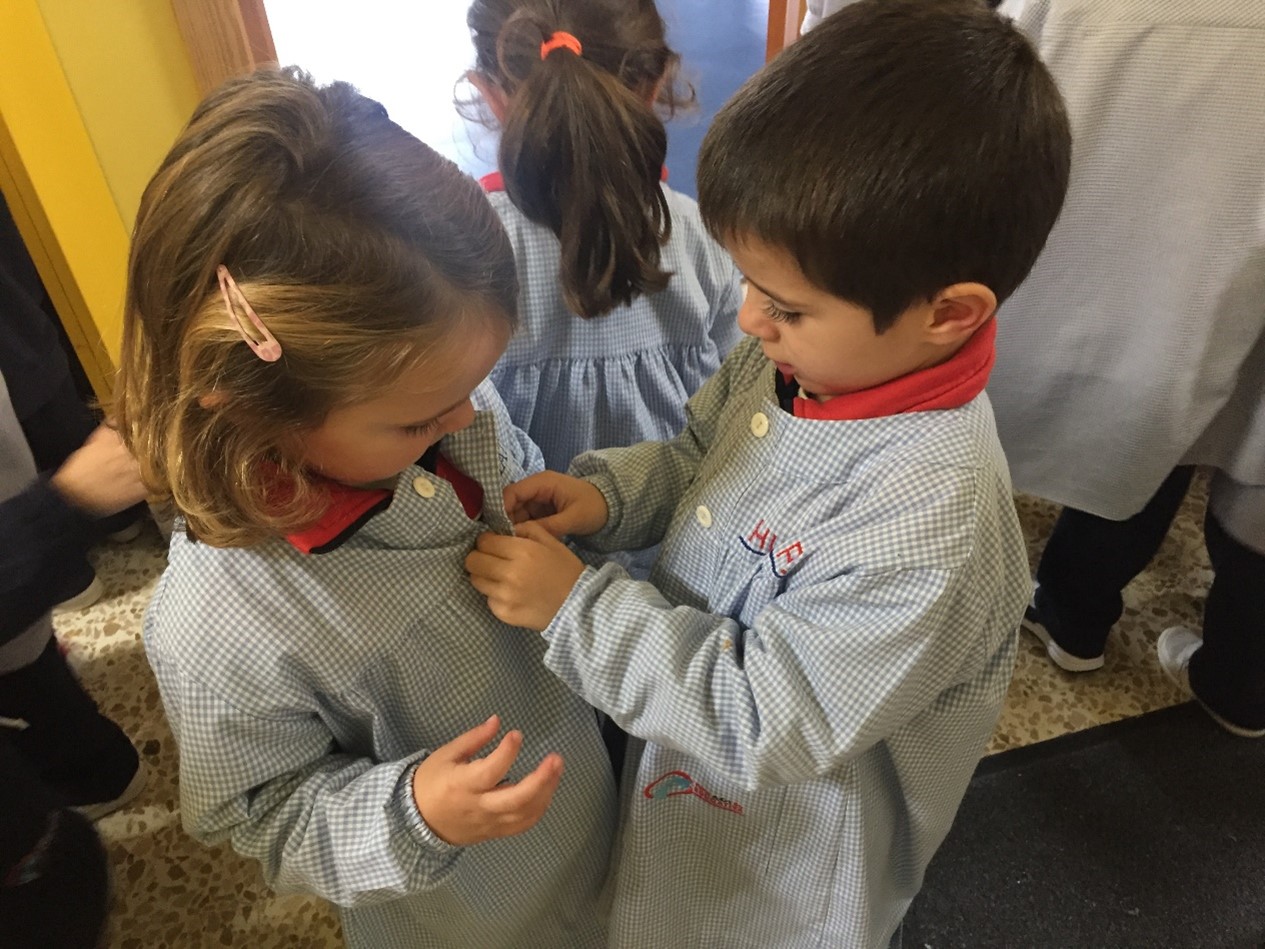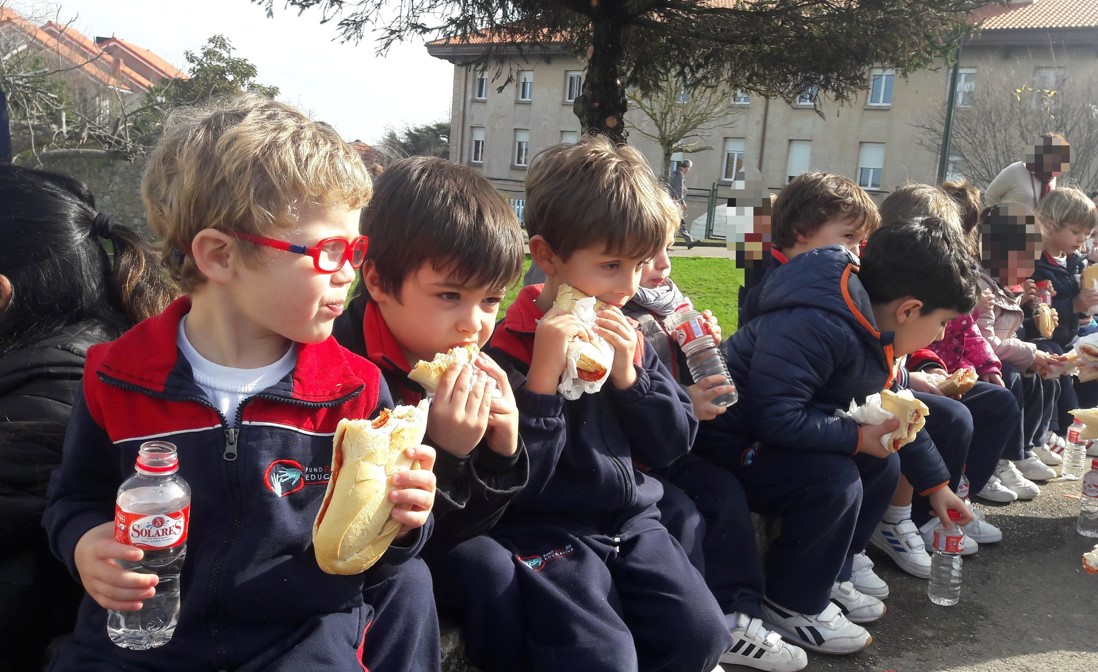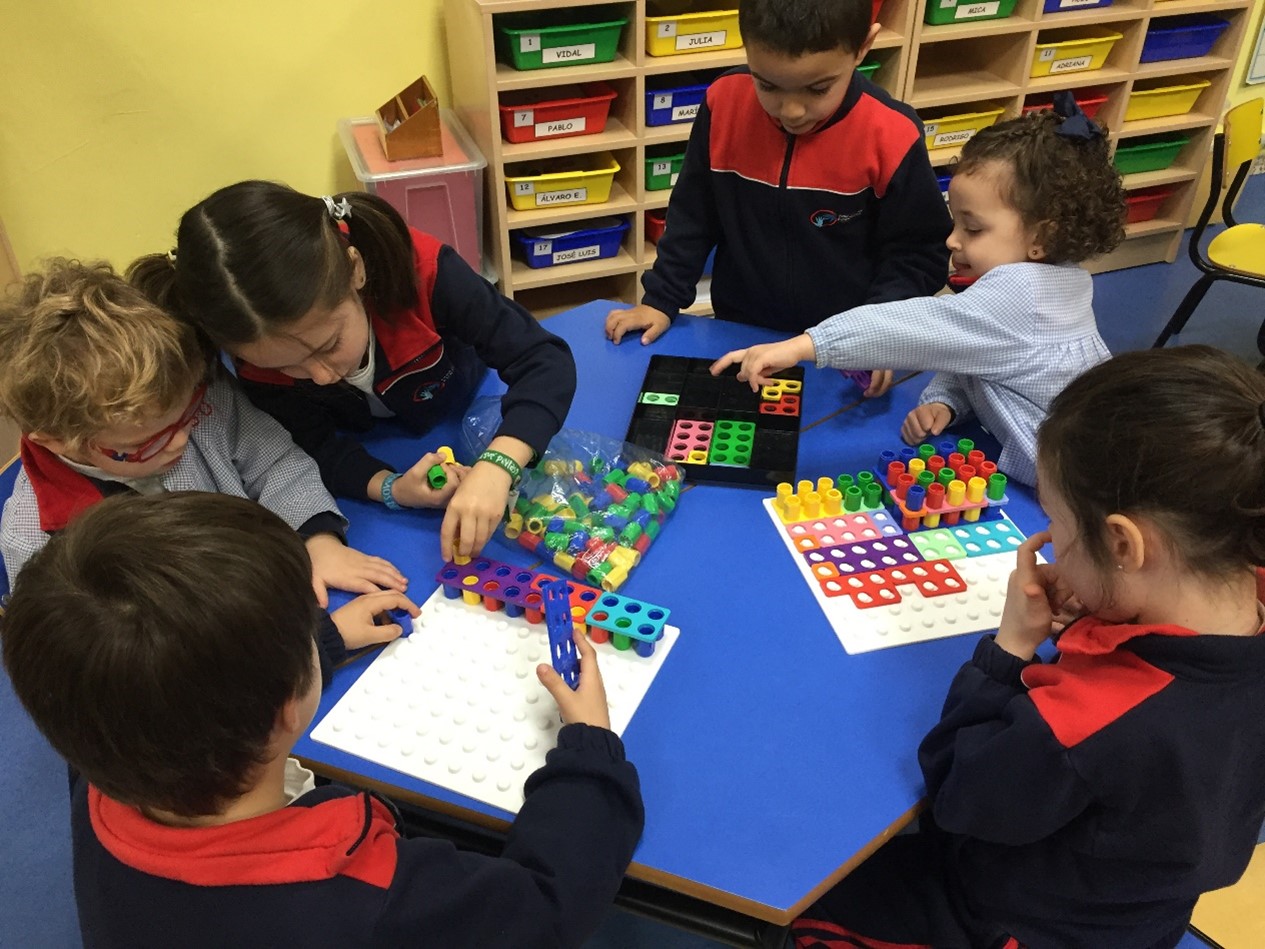
16 Dec PROJECT: PEER TUTORING. SPAIN
For the past four years we have been conducting an Early Education Peer Tutoring Program, whose acronym is TEI. The Program is an educational strategy for coexistence for the prevention of violence and school bullying. It is based on affective peer mentoring and develops respect, empathy and commitment as basic elements of coexistence. It is a holistic and integral program in which the entire faculty, the student body and the families take part. The TEI Program in Early Childhood Education is a program which aims to generate healthy behavior and habits. The five-year-old children are the affective mentors of the three-year-olds. It is based on role-modeling and pairing up children. Keeping in mind that the 3-year olds are more vulnerable, with fewer social skills, they have to have a 5-year=old partner with more advanced social skills. It is a matter of empowering the 5-year-old students, who are actually the principal subjects of the program. Being a “Big Brother” or “Big Sister” is voluntary because we are looking for involvement and commitment. Those students who do not want to be mentors can be cooperating students, although in early childhood education the reality is that they all want to participate actively; therefore, they sign a commitment that they want to do it, and that they are going to be good Big Brothers or Sisters. There is a school ceremony for the COMMISSIONING, and at the end of the course there is a RECOGNITION, thanking them for the work they have done as Big Brothers and Sisters. Before pairing the partners, TEI conducts BONDING ACTIVITIES to observe the spontaneous interactions that emerge among them and how they connect with one another. For example, they tell them stories, they help them to take off their backpacks and overcoats, they play together in the classrooms… They also engage in some DEVELOPMENTAL ACTIVITIES focused on emotional education. The peer education focuses on the areas of empathy, inclusion, self-control, self-knowledge and positive conflict management. All the activities are based on a design for affective learning (DEA). The DEA structure begins with a video, story or dramatization of a situation. The students reflect on what they have seen, and they share possible solutions or experiences that they have had. It ends with a commitment that should be short and easy to accomplish. Once the peers have been set up, keeping in mind the needs and skills, TEI carries out BONDING ACTIVITIES. For example, we do sessions of psychomotricity, a round of physical and neurological stimulation, we go to the library together, to the theatre; we work together with Numicon… We have created a TEI SPACE to inform the families in an illustrated format about the activities that we are doing, to introduce the TEI peers, and to have a space for communication for the children if there is some conflict, or if anyone needs anything. Finally, the Program is evaluated by all those involved. The five-year-olds answer questions (in the first and third trimester) asking if they see very much of their Little Brother or Sister, if they play with him or her, if they help him or her when asked, and in the third trimester they are asked if they like being Big Brothers or Sisters, and how they have felt. For the three-year-olds this is done orally (in the third trimester). They are asked if they will want to be Big Brothers or Sisters when they are older, and the answer is an unqualified yes. The teachers involved also evaluate the program. The results that we have observed are that the children are more empathetic toward other children, they are more accepting of new children at school, they explain better how they are feeling and what they need when there are conflict situations, and how the group intervenes to support anyone who has felt hurt. The families have evaluated the Program very positively. We have participated in the First International Congress on bullying and cyberbullying TEI Program that was held in 2021 in Santander, where we received the national award for best practices in Early Childhood Education, and in May of 2022 we were invited to present our experience in the XIII Congress of Education of Cantabria on positive coexistence and restorative practices, as an inspiring experience for other educational centers. Cristina Arenal



